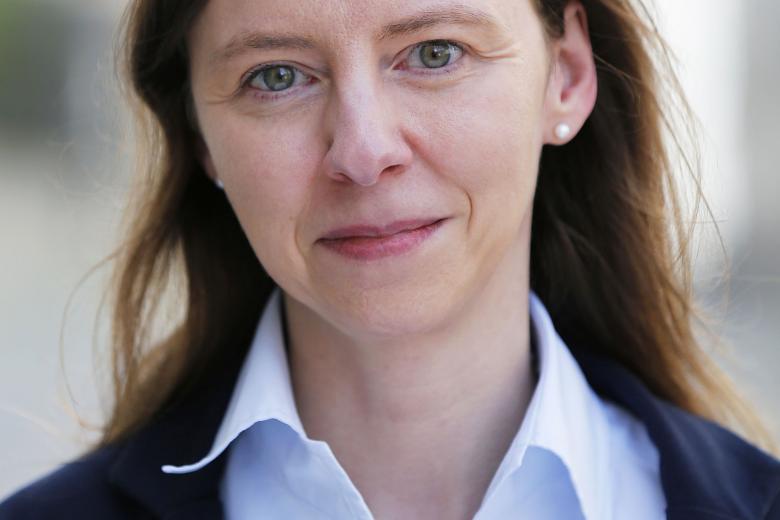Summary of the Ius Commune Workshop on Contract Law
The Ius Commune Workshop on Contract Law took place on 25 November with its main theme being Empirical Research in Contract Law. During the workshop, five presenters reported on either their fully-fledged projects or shared ideas on early-stage studies.
Just as in any other field of law, researchers investigating issues related to contract law approach them from different perspectives. Sometimes they are interested in finding out how to interpret specific contract law provisions, other times they want to compare how similar problems were solved in different legal systems or they want to learn how contract law functions in our daily lives. In the latter case, legal scholars usually implement empirical methods that allow them to describe and explain real-world phenomena. For instance, they want to find out how judges decide cases on a specific topic, what people’s expectations of the law are and what they know about it, or how people behave and make decisions in contractual relationships.
Empirical Research in Contract Law was the main theme of a recent Ius Commune Workshop on Contract Law that took place on November 25th. During the workshop, five presenters reported on either their fully-fledged projects or shared ideas on early-stage studies. The topics covered ranged from issues faced by a consumer when doing groceries online to the legal status of unilateral promises and their recognition by Portuguese courts. The methods implemented to research those topics also represented a wide variety including experiments, online surveys, or systematic content analysis.
The first speaker, Prof. Alexander E. Kirpichev from the Russian State University of Justice, presented ongoing empirical research about the adequacy of legal remedies available to consumers doing their groceries online. The importance of this topic increased during the COVID-19 pandemic when many consumers switched to online shopping even for food products. Prof. Kirpichev conducted a series of consumer surveys to learn whether consumer expectations about legal remedies in case of late delivery of groceries as well as the definition of late delivery overlap with those provided by law. From the methodological point of view, it was challenging to distribute the survey to consumers who, indeed, frequently do their groceries online. Prof. Kirpichev described several approaches that he implemented to reach the population of interest. His results show that consumers expectations do not correspond to what is provided by law. Interestingly, Russian consumers also do not seem to be aware of the incentives that the law provides them with in order to motivate consumers to bring cases against companies violating contract and consumer law, i.e., that consumer receives 50% of the fine imposed on a company if he wins the case.
Prof. Franziska Weber from Erasmus School of Law, Rotterdam presented an experimental project she has been working on together with Tim Friehe and Leonie Gerhards. In this project, Prof. Weber addresses a very topical yet rather neglected issue that arises when people share their personal data, i.e., when sharing their data, people reveal information not only about themselves but also about third parties (e.g., their friends or family). In other words, a decision that may seem like a decision about our own privacy usually also affects the privacy of others. Prof. Weber wanted to learn whether people care about that, i.e., whether the knowledge that the decision affects the privacy of third parties decreases people’s willingness to share their data. The experimental results revealed that if sharing personal data may lead to negative consequences for others, people’s willingness to share decreases. Yet, whether those negative consequences are only a risk, or occur with certainty, does not further restrict this decision. Participants of the workshop discussed further what kind of implications these results have for law and whether legal rules do and/or should take the consequences of data subjects’ decisions on third parties into account.
The last presentation in the first session was devoted to people’s decisions about free beneficial offers. Dr. Monika Leszczynska from the Maastricht University Faculty of Law presented the ongoing project that she has been working on with Caroline Goukens (Maastricht University School of Business and Economics) and Vicki Morwitz (Columbia Business School). Although the legal status of free offers is unclear, previous research has revealed that people tend to overestimate the benefits of zero-price products and that such offers lead to positive emotional responses. Based on a series of online experiments, Dr. Leszczynska and her collaborators have shown that free offers may also lead to negative responses and be rejected. Importantly, in contrast to previous studies, in her experiments participants were offered products that are truly profitable, i.e., using a free product participants can earn more money. Nevertheless, comparing various framings Dr. Leszczynska consistently finds a high share of individuals (ca. 30-60%) rejecting a product offered to them for free. The initial results suggest that free offers may trigger suspiciousness and, thus, make people forgo even a truly free and profitable deal.
In the second session, Dr. Malou Larsson Klevhill (Uppsala University) presented an early-stage research project on the management of risks related to business-to-business transactions for AI-based tools used in financial markets. Dr. Klevhill and her team want to explore how companies are approaching the contractual regulation of these risks. To this end, she plans to systematically investigate the content of contracts for such products, as well as interview legal counsellors and other representatives of businesses that are either selling or using such products. The project aims at formulating recommendations on whether self-regulation or legal rules are most appropriate to deal with the new issues of risk management and accountability raised by these new types of tools.
Finally, Dr. João de Oliveira Geraldes (University of Lisbon School of Law) presented empirical research of a different type. He explained that empirical research of Portuguese case law dealing with unilateral promises showed a discrepancy between the law in the books and the law in action. While the Portuguese civil code explicitly recognizes the binding force of unilateral promises, their bindingness is consistently denied by the courts. He questioned whether this could be explained by the fact that the unilateral promise was included in the Portuguese civil code as a legal transplant that originated in German law and was based on the principle of party autonomy, the power of individuals to shape their legal relationships with other citizens, which was difficult to reconcile with the dictatorial regime in place in Portugal at the moment the Portuguese code was introduced. However, he found that the case law did not change after the dictatorial regime was replaced by a democratic one.
-
FullCompensation: Pain and suffering damages shouldn’t be a lottery
The pain and suffering of accident victims does not have a price and, in claims for damages, no fixed economic value. Thus, quantifying the amount of money needed to compensate for pain and suffering is a subjective exercise often influenced by adjudicators’ biases.

-
The Things We (Don’t) Care About: A Reflection Following the MEPLI Interns’ Thesis Workshop
Reflecting on the M-EPLI Interns' Thesis Workshop: Can institutions benefit from reassessing their priorities in terms of what they incentivize and analyzing why these types of events offering an opportunity for students to write and get substantive feedback so rare?

-
Don’t sweat the small stuff? The new proposal for the EU directive on corporate sustainability due diligence
On 23 February 2022, the European Commission released the much anticipated proposal for the Directive on Corporate Sustainability Due Diligence. The aim of this Directive is to reduce human rights violations and environmental harms across the global value chain by making large companies carry out...

